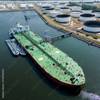Europe Sleep Walking into an Energy Crisis: Analyst
The downing of flight MA17 has prompted calls for further sanctions on Russia targeted at its energy sector. Douglas-Westwood in its 'DW Monday' analysis considers whether such sanctions could have sufficient teeth.
Russia is the world’s largest exporter of natural gas and second largest exporter of oil which together account for near 60% of its export earnings. Gazprom supplies 30% of Europe's gas - some 15% via Ukraine - and has warned exports will be affected if sanctions are expanded.
But in its payments row with Ukraine Gazprom has already stated that it will “only be supplying the exact amount of gas requested by our European partners to the Russia-Ukraine border”. Considering that Ukraine itself needs to draw gas supplies from the same pipelines, Europe is already threatened with gas shortages.
But Russia itself also faces challenges, namely in maintaining – let alone growing – production as existing fields deplete. In 2000, it drilled 3,770 wells and production was some 17 million boe/day. By 2013 it was drilling some 7,500 wells and achieved a production of 23 million boe/day – well numbers up 99% for a production gain of 35%.
On this basis at DW we forecast it will need to be drilling over 8,800 wells in 2020 and in increasingly more difficult areas, hence the Exxon rig sailing to location in the Russian arctic (much to the embarrassment of some on Capitol Hill).
The Russian economy is already in a mess and to maintain its oil & gas production it increasingly needs to access western capital markets and advanced oilfield technologies. Sanctions that severely hit its energy production will indeed work and cripple the Russian economy, but could cause oil prices to soar and thereby impact the still fragile global economy.
But the real lesson of this whole affair is for Europe – it is far too reliant on imported energy.
No single type of energy source or supplier is immune from problems and Douglas-Westwood have long warned that Europe is sleep walking into an energy crisis due to lack of investment in both ‘home grown’ base-load energy sources such as nuclear power and shale gas, in energy storage and Europe-wide integrated transmission networks.













